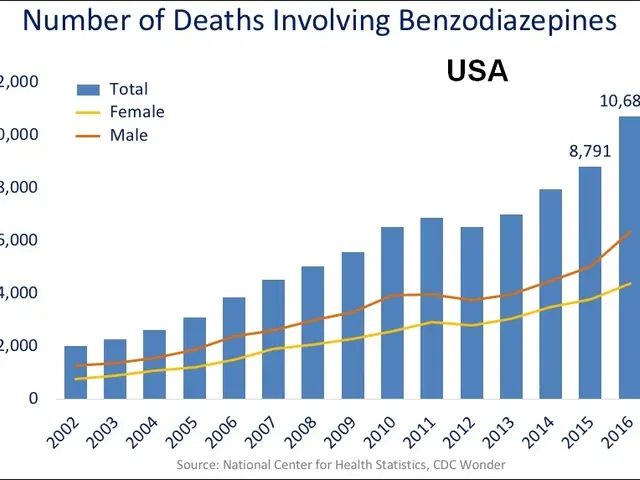Handling Offenses Involving Drugs and Alcohol: A Global Perspective
In a growing number of countries, a shift in approach to drug and alcohol offenses is leading to positive impacts on public health and social outcomes. This change involves decriminalization, harm reduction, social support, and evidence-based policies.
Norway is currently piloting programs where individuals caught with small amounts of drugs are offered treatment instead of prosecution. Early results show better engagement with health services and less recidivism with these interventions.
Portugal, which decriminalized the possession and use of all drugs for personal use in 2001, has seen key outcomes such as a dramatic reduction in drug-related deaths and HIV infections, and no significant increase in drug use cases per capita.
The Czech Republic decriminalized the possession of small amounts of most drugs in 2010, resulting in stable or declining rates of drug use and low rates of HIV among people who use drugs.
Harm reduction strategies are at the forefront of these changes. Needle exchanges, safe consumption spaces, and access to treatment are prioritized. In the Netherlands, small amounts of cannabis are tolerated for personal use and can be purchased in licensed "coffeeshops," while hard drugs remain illegal. However, the focus is on harm reduction.
In Switzerland, heroin-assisted treatment (HAT) programs were introduced in response to a heroin crisis in the 1980s and 1990s. Many participants in these programs eventually transition to abstinence or less harmful treatments. As a result, the country has seen a huge drop in overdose deaths, HIV infections, and drug-related crime.
In the United States, the approach to drug and alcohol offenses varies by state. Some states impose harsh mandatory minimum sentences, while others focus on rehabilitation. Having a skilled lawyer can lead to better outcomes, such as reduced charges or sentences through plea bargains.
Expanding harm reduction services, such as syringe service programs, naloxone distribution, and access to evidence-based medications for opioid use disorder, has correlated with a nearly 25% decline in overdose deaths from 2023 to 2024. These approaches lower barriers to care and help prevent fatal overdoses.
However, sustaining funding and political commitment is critical to maintaining progress. For example, funding cuts to Medicaid and related services threaten to reverse the gains made in improving social outcomes for individuals struggling with addiction.
International comparison highlights the potential benefits of such policies. Canada, which similarly has some harm reduction measures, saw a lower opioid death rate compared to the US in 2022.
In South Africa, legal representation is crucial, but access can be limited for those who can't afford private lawyers. Drug offenses are prosecuted under the Drugs and Drug Trafficking Act, with severe penalties, especially for trafficking or possession of large quantities.
In conclusion, countries that implement decriminalization, harm reduction, social support, and evidence-based policies tend to see decreases in overdose deaths and improved social outcomes. These approaches facilitate access to prevention and treatment, reduce infectious disease transmission, and improve quality of life.
- In some countries, instead of prosecution, individuals caught with small drugs are offered treatment, leading to better engagement with health services and less recidivism.
- Portugal, upon decriminalizing the possession and use of all drugs for personal use, witnessed a dramatic reduction in drug-related deaths and HIV infections, without a significant increase in drug use cases.
- The Czech Republic, after decriminalizing the possession of small amounts of most drugs, has experienced stable or declining rates of drug use and low rates of HIV among people who use drugs.
- Harm reduction strategies, such as needle exchanges, safe consumption spaces, and access to treatment, have become priority measures in these policy changes.
- Switzerland, in response to a heroin crisis, introduced heroin-assisted treatment programs, resulting in a considerable drop in overdose deaths, HIV infections, and drug-related crime.
- While the US approach to drug and alcohol offenses varies by state, expanding harm reduction services, like syringe service programs, naloxone distribution, and access to medications for opioid use disorder, has contributed to a significant decline in overdose deaths.
- International comparison reveals that countries that implement decriminalization, harm reduction, social support, and evidence-based policies tend to have lower opioid death rates and improved social outcomes, facilitating access to prevention and treatment, reducing infectious disease transmission, and enhancing quality of life.




